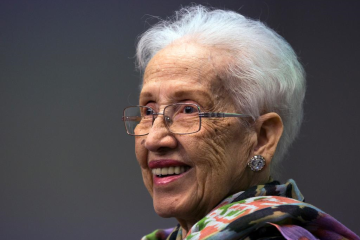Benjamin Franklin, exiting the Constitutional Convention in 1787, was asked about the kind of government the delegates were creating. With characteristic wit and wisdom, he replied: “A Republic, if you can keep it.” Franklin, along with most of our founding fathers, believed that a democracy is only as good as its citizens, since democracy only flourishes with citizens who are capable of governing themselves. To quote Franklin again, “only a virtuous people is capable of freedom.”
Unfortunately, we have lost Franklin’s understanding of the connection between virtue, self-government, and democracy. Indeed, few students today learn anything about virtue, let alone see any connection between it and the fate of our republic. Alarmingly, most students today cannot pass even the most rudimentary civics test.
School, as the social community in which our children spend most of their waking hours, is the obvious place to begin teaching the civic virtues—those positive character traits that allow us to live well in society together and work towards a common good. These virtues should be taught not simply as concepts to be understood, but as a praxis to be lived out every day, in the classroom and well beyond it.
Civility is the most basic and obvious virtue to be taught in our public schools. Civility is derived from the Latin words for citizen (civis) and city (civitas) because it is the virtue that makes us fit to enjoy the benefits, as well as to carry out the responsibilities of being a member of society. Civility is a virtue that strikes a mean of action between two extremes that must be avoided: displaying lack of respect for others as equal participants in some society, on the one hand, and being overly ingratiating towards them, on the other. Civility governs the way we speak with and behave towards one another as members of a society. When we teach civility to students, we must be clear that the basis of its demands is that we all deserve, as members of the learning community, equal respect and equal opportunities to succeed. Yet we cannot have truly equal participation and equal opportunities unless we are treated with the fundamental respect we deserve simply as fellow human beings.
Civility is also connected to truth because there is a difference between respect for others as persons and other attitudes, like flattery or admiration. A student shows respect to classmates and teachers by following the mutually agreed upon rules and social norms for the school, but civility does not demand that a student never disagree with anyone, or that he is never frustrated, angered, or dismayed by what someone has said or done to him at school. If true civility is promoted in our schools, students will feel empowered to speak their minds because one fruit of civility is mutual trust between persons. When we respect one another in speech and deed, we come to trust one another as equals, and it is this trust that gives us the freedom to state our grievances, concerns, and objections without undue worry of retaliation or reproach. In a classroom where rules of civility are recognized and enforced, students can trust that they will be heard and understood and that disagreements will be handled respectfully.
Civility is key to success in learning. Students need to feel that they can speak their minds freely in the classroom, but they cannot have this freedom outside the context of civility, else the exchange of ideas becomes nothing more than a battle of wills. Moreover, empirical research suggests that incivility in our schools makes it difficult for children to learn; it tends to create a climate of fear, anxiety, and avoidance, and lowers measures of student well-being and academic performance.
Civility is not just external gestures of respect, but also inner feelings because the cultivation of civility helps bonds of civic friendship grow. We cannot and should not expect all students in a school to be close friends; the sort of deep friendships that are the hallmark of happy and meaningful lives is by nature far more discriminating and exclusive than the bonds of civic friendship. However, civic friendship is real friendship because it too involves mutual goodwill, affection, and shared activities and ends in common. We can and should try to foster this civic friendship between students. We do this when we help students realize that they are all participants in the same community, and thereby all working towards the same common ends and goods.
It is part of a true education for students to come to understand themselves as parts (in the sense of participants) in a larger whole whose fortunes are tied to their own: family, school, church, city, state, and nation. We should make these connections clear not just in our families and private lives, but also in our schools because here, too, students learn to engage in cooperative activities with one another under a system of rules that are enforced by recognized authorities. Too often, today’s students are unable to understand the connection between the rules that govern their lives and their own flourishing. But if we adopt the broader lens of virtue in education, students come to see these rules as the necessary limits within which their own success is possible. Rules should, therefore, not simply be articulated and enforced, but explained in ways that enable students to understand why they are practically necessary—necessary in the sense that the goods they desire depend upon them.
In our fractured and divided society, we need civility now more than ever. It is no minor virtue. We need our schools to understand, appreciate, and teach civility because the health of our democracy depends on it.








